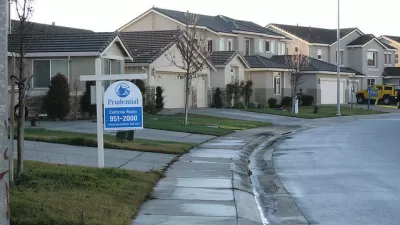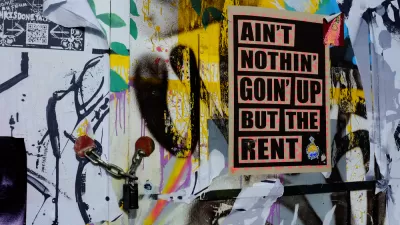More media attention for the growing influence of large, institutional investors on the housing market.

Heidi Groover examines one of the big questions of the contemporary housing affordability crisis: to what degree are investors responsible for run away housing costs.
Groover places the question in context of the housing market in Seattle, and with the help of data and analysis recently published by Redfin. Here is the key finding for the Seattle area, as explained by Groover:
The share of Seattle-area homes sold to investors has climbed steadily over the past two decades — from about 3% in 2000 to 9% this fall — according to data released by Redfin this week. Other measures vary, depending on how “investor” is defined. Those range from 6% to 29% of all home sales.
Groover also notes that the trends apparent in Seattle are also occurring around the country:
Nationally, investors bought a record-high 18% of the homes sold in the third quarter of this year, and investors increasingly turned to single-family homes, according to Redfin.
Despite the growing number of investors buying up homes, the verdict is more nuanced than blaming investors alone for skyrocketing housing prices:
Still, investors alone can’t explain Seattle’s increasingly out-of-reach housing market. Individual buyers with cash from stocks or the sale of their last home drive bidding wars, sometimes with all-cash offers.
In the feature-length source article linked below, Grover provides a lot more anecdotes, data, and insight into Redfin's recent study, as well as the real estate market around Seattle.
For more background, Planetizen has been tracking the emerging awareness of institutional investors in the housing market since 2019, including a deep dive into the subject in April 2021.
FULL STORY: So you can’t afford a house in Seattle. Are investors to blame?

Planetizen Federal Action Tracker
A weekly monitor of how Trump’s orders and actions are impacting planners and planning in America.

Congressman Proposes Bill to Rename DC Metro “Trump Train”
The Make Autorail Great Again Act would withhold federal funding to the system until the Washington Metropolitan Area Transit Authority (WMATA), rebrands as the Washington Metropolitan Authority for Greater Access (WMAGA).

The Simple Legislative Tool Transforming Vacant Downtowns
In California, Michigan and Georgia, an easy win is bringing dollars — and delight — back to city centers.

The States Losing Rural Delivery Rooms at an Alarming Pace
In some states, as few as 9% of rural hospitals still deliver babies. As a result, rising pre-term births, no adequate pre-term care and "harrowing" close calls are a growing reality.

The Small South Asian Republic Going all in on EVs
Thanks to one simple policy change less than five years ago, 65% of new cars in this Himalayan country are now electric.

DC Backpedals on Bike Lane Protection, Swaps Barriers for Paint
Citing aesthetic concerns, the city is removing the concrete barriers and flexposts that once separated Arizona Avenue cyclists from motor vehicles.
Urban Design for Planners 1: Software Tools
This six-course series explores essential urban design concepts using open source software and equips planners with the tools they need to participate fully in the urban design process.
Planning for Universal Design
Learn the tools for implementing Universal Design in planning regulations.
Smith Gee Studio
City of Charlotte
City of Camden Redevelopment Agency
City of Astoria
Transportation Research & Education Center (TREC) at Portland State University
US High Speed Rail Association
City of Camden Redevelopment Agency
Municipality of Princeton (NJ)





























